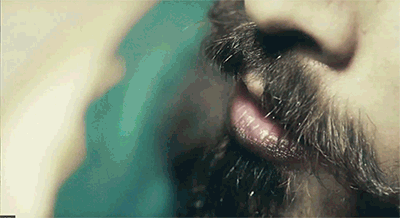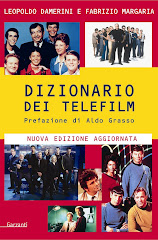News tratta da "Entertainment Weekly"
The upcoming Star Trek TV series will be unlike any
previous small-screen incarnation of the franchise in at least one key
respect, showrunner Bryan Fuller points out: It won’t be bound by
broadcast content standards.
In a red carpet interview with Collider, Fuller said that the eagerly awaited new show, which will debut on CBS in January but then switch to the streaming service CBS All Access, will have a rather different prime directive than the previous 762 hours of TV-sized Trek, which either ran entirely on broadcast networks or in syndication.
“Because we’re CBS All Access, we’re not subject to network broadcast standards and practices,” says Fuller, who famously pushed the boundaries of broadcast TV content on his last series, NBC’s Hannibal. “It will likely affect us more in terms of what we can do graphically. But Star Trek’s not necessarily a universe where I want to hear a lot of profanity, either.”
Maybe not a lot, but even a little profanity would be quite different than the generally chaste small-screen Trek universe that’s familiar to fans of The Next Generation, Voyager or Deep Space Nine.
Fuller also confirmed that the first season, which debuts next January, will consist of 13 episodes. Casting is underway, and Fuller says he’s considering actors for his roles in “a colorblind prism and a gender-blind prism.”
The writer-producer was also asked if the franchise might include gay characters for the first time. “I think the progressive audience that loves Star Trek will be happy that we’re continuing that tradition,” he says.
The original Star Trek was, of course, an envelope-pushing show for its time, featuring progressive ideals and an inclusive, racially diverse cast. Trek even aired TV’s first interracial kiss (between William Shatner and Nichelle Nichols) in a 1968 episode that certain stations refused to air.
In a red carpet interview with Collider, Fuller said that the eagerly awaited new show, which will debut on CBS in January but then switch to the streaming service CBS All Access, will have a rather different prime directive than the previous 762 hours of TV-sized Trek, which either ran entirely on broadcast networks or in syndication.
“Because we’re CBS All Access, we’re not subject to network broadcast standards and practices,” says Fuller, who famously pushed the boundaries of broadcast TV content on his last series, NBC’s Hannibal. “It will likely affect us more in terms of what we can do graphically. But Star Trek’s not necessarily a universe where I want to hear a lot of profanity, either.”
Maybe not a lot, but even a little profanity would be quite different than the generally chaste small-screen Trek universe that’s familiar to fans of The Next Generation, Voyager or Deep Space Nine.
Fuller also confirmed that the first season, which debuts next January, will consist of 13 episodes. Casting is underway, and Fuller says he’s considering actors for his roles in “a colorblind prism and a gender-blind prism.”
The writer-producer was also asked if the franchise might include gay characters for the first time. “I think the progressive audience that loves Star Trek will be happy that we’re continuing that tradition,” he says.
The original Star Trek was, of course, an envelope-pushing show for its time, featuring progressive ideals and an inclusive, racially diverse cast. Trek even aired TV’s first interracial kiss (between William Shatner and Nichelle Nichols) in a 1968 episode that certain stations refused to air.








.jpg)







.jpg)















Nessun commento:
Posta un commento